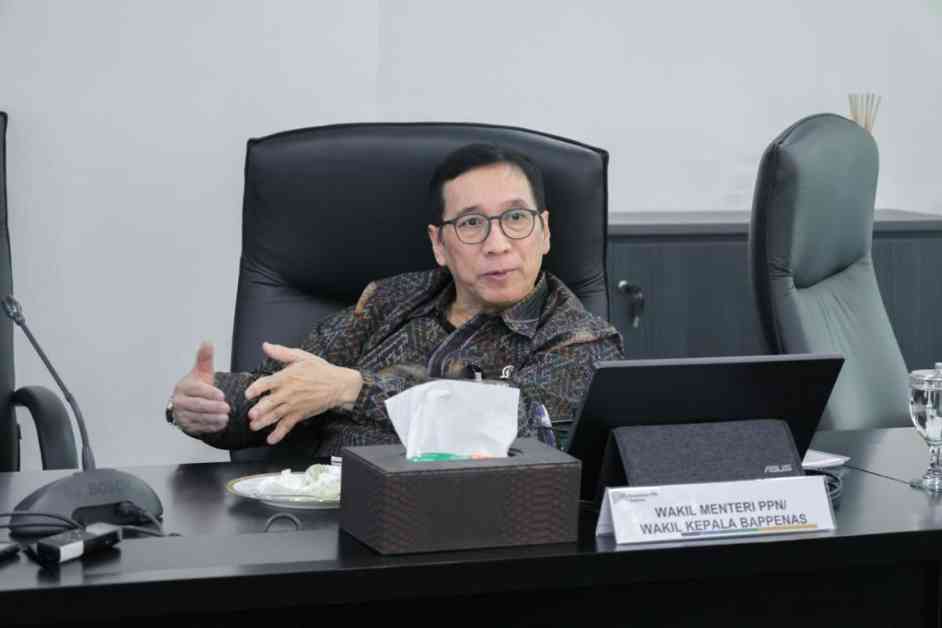Indonesia’s National Development Planning Ministry (Bappenas) is taking a significant step towards the development of nuclear power plants. Deputy Minister of National Development Planning Febrian Alphyanto Ruddyard emphasized the importance of seizing the moment and avoiding endless discussions without tangible action during a recent meeting with the Nuclear Energy Research Organization of the National Research and Innovation Agency (ORTN BRIN) and PT Industri Nuklir Indonesia (Persero) in Jakarta.
The country faces various challenges in fulfilling the requirements for nuclear power plant development, including establishing a clear national position, ensuring organizational readiness, and mapping stakeholders involved in the process. To address these issues, Bappenas will lead the formation of a working group dedicated to revising institutional matters related to nuclear energy development, with plans to present a letter of recommendation to the President of Indonesia.
Ruddyard highlighted the strategic steps that the working group will undertake, including the establishment of a robust and independent nuclear power plant acceleration team, reforms in nuclear energy regulations and policies, and the creation of a nuclear energy implementing agency. These initiatives aim to streamline the process and pave the way for efficient and effective nuclear power plant development in Indonesia.
One of the key challenges identified during the meeting was the misconception that nuclear power is a straightforward solution. While the potential benefits of nuclear energy are significant, the ecosystem required to support its implementation is still in its nascent stages. Ruddyard emphasized the need to lay the groundwork for a sustainable nuclear energy program, underscoring Bappenas’ responsibility in planning and executing this critical initiative.
Amidst the push towards nuclear power plant development, Indonesia remains committed to achieving net zero emissions by 2060. Nuclear energy is viewed as a vital component of the country’s energy transition strategy, offering a clean and reliable alternative with the capacity for rapid scalability. By leveraging nuclear power, Indonesia aims to meet its energy needs while reducing its carbon footprint and contributing to global sustainability efforts.
### Challenges and Opportunities in Nuclear Power Plant Development
The journey towards nuclear power plant development in Indonesia is fraught with challenges at both the macro and micro levels. Political, institutional, and socio-technical issues have posed significant hurdles to the realization of nuclear energy projects. The need for comprehensive reforms, strategic planning, and stakeholder engagement is crucial to overcoming these obstacles and advancing the country’s nuclear energy agenda.
While the idea of building nuclear power plants has been on the agenda for over two decades, translating this vision into actionable plans requires a multi-faceted approach. By addressing the regulatory, policy, and organizational aspects of nuclear energy development, Indonesia can create a conducive environment for sustainable and safe nuclear power generation.
### Nuclear Power as a Catalyst for Energy Transition
As Indonesia charts its course towards net zero emissions by 2060, nuclear power emerges as a promising solution to meet the country’s growing energy demands. By harnessing the potential of nuclear energy, Indonesia can bolster its energy security, reduce its reliance on fossil fuels, and mitigate the impacts of climate change. The development of nuclear power plants represents a critical milestone in Indonesia’s transition to a low-carbon economy, signaling a paradigm shift towards cleaner and more sustainable energy sources.
Indonesia’s pursuit of nuclear power for energy needs demonstrates a forward-thinking approach to energy policy and environmental sustainability. By embracing nuclear energy as a strategic asset, Indonesia can position itself as a leader in clean energy innovation and contribute to the global fight against climate change. As the country embarks on this transformative journey, collaboration, innovation, and strategic planning will be key to realizing the full potential of nuclear power in Indonesia’s energy landscape.






















